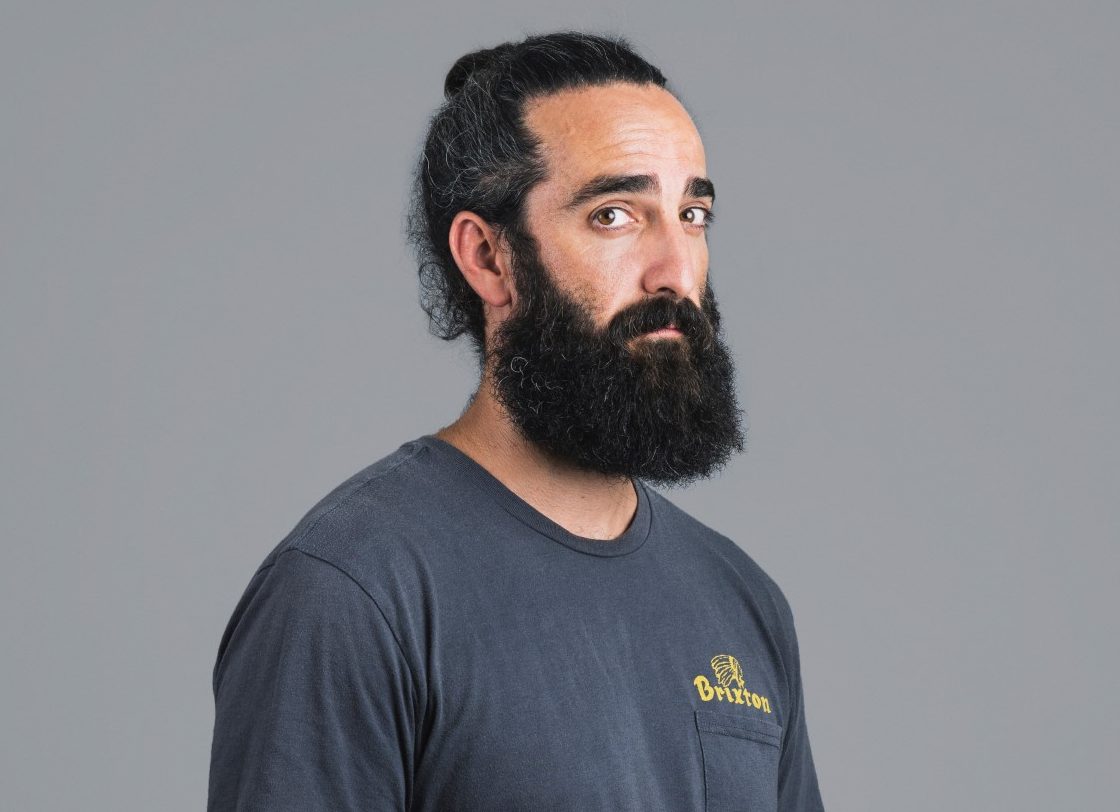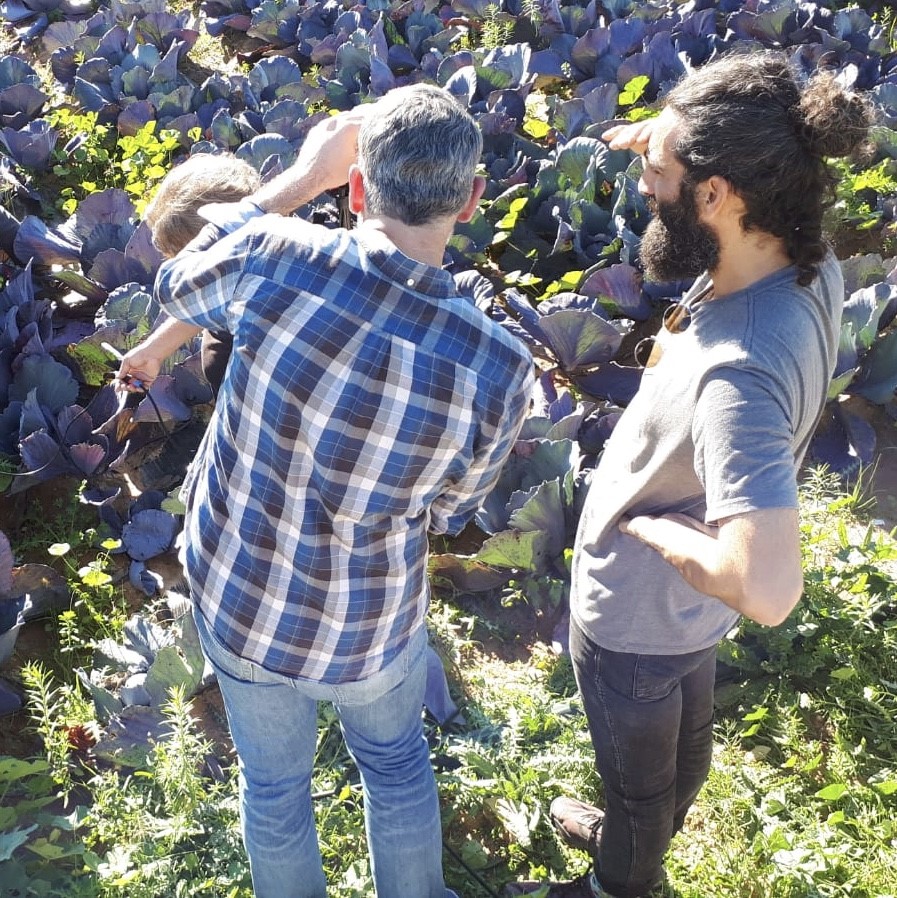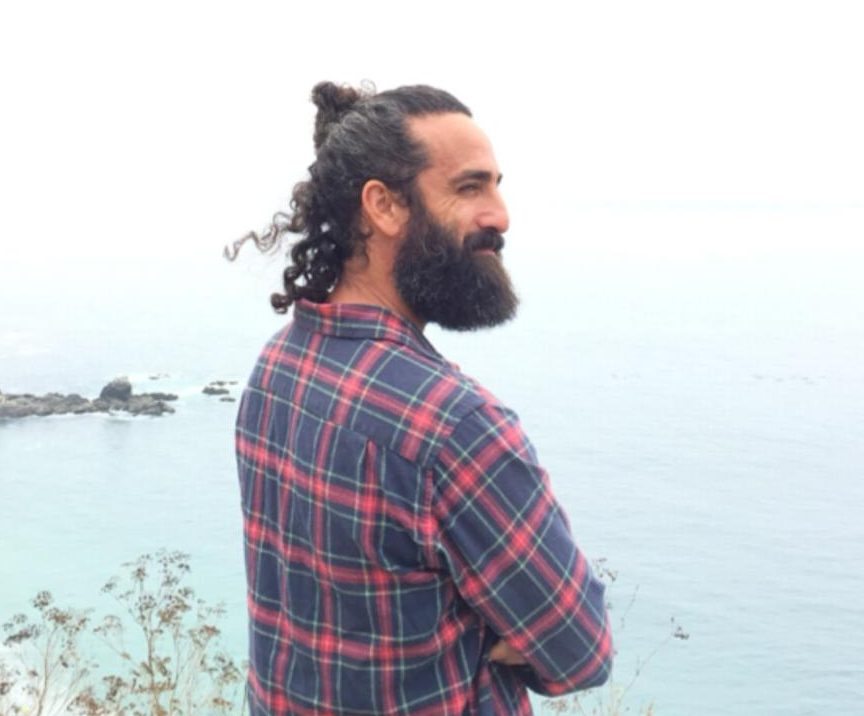Fran Sanmartín feels more like a creative than an advertising professional. So we wanted to have a talk with him about what he is passionate about: creativity. Creativity well understood. The one that goes beyond themainstreamand arises from observation, critical thinking and the ability to question –almost– everything. A few years ago, a young Fran decided to drop out of Chemical Engineering and sit in the CEU classrooms to study Advertising and Public Relations. A 360º turn that has led him to his current profession:Creative Director at Rosebud Agency.
Fran, what is the day-to-day work of a Creative Director like?
In an advertising agency you work with several clients at the same time. This means that you have many open fronts and it is easy for something to get out of hand. That is why I like to start the day by writing down in my notebook all the tasks that I have to carry out during the day: calls, presentations, filming… It is a way to have everything under control and thus avoid stress. In addition, as I complete the tasks, I can cross them off the list, which feels great.

Due to the pandemic, we are still working a lot from home, so Zoom meetings carry a lot of weight on a day-to-day basis. During the projects that I carry out, I like to share ideas, impressions, receive feedback… Before, it was as easy as going to “annoy” the teammates to their desk, but now it all has to be via Zoom.
“There is a little bit of you in every creative idea”
The day ends at 18:30. At that time we can shut down the computer and dedicate ourselves to something else. This is also very necessary. You need to have had a wide range of experiences to create. If you don’t have time to live, you are limiting your resources.
You have won several awards throughout your career. We know that one learns a lot from success but perhaps even more from failure. Do you remember any setback in your career that made you learn?
I remember a campaign in which we were working two different teams from the same agency. It was about competing with each other to present a couple of ideas to the client. It seemed to me that the team in which I was integrated had the best creative concept. I thought we had conceived an idea that was going to make an impact on the audience who watched the campaign; that they were going to love it. So, during the presentation to the client, I excitedly told the idea thinking about them, about the people. I soon realized that the client did not have the reaction that I expected.
“You need to have had a wide range of experiences to create. If you don’t have time to live, you are limiting your resources”
My mistake was not taking into account the person who was in front of me at the time. And the lesson I drew is that not everything is sold the same way. The way to do it varies depending on the person you have in front of you. The other team focused on presenting their idea to the client; they adapted the speech to him and in this way, managed to convey security and confidence.
In advertising, it is not enough to have an idea. You have to know how to sell it and then produce it. Each of these three phases are important.
Tell us something you love about advertising and something that doesn’t excite you so much…
In general, I really like what I do. And above all, I like creativity. I like to apply it to solve problems.
I cannot choose a single thing that I like, so I will tell you several:
We have a tremendous power to create amazing things. I remember working on a campaign for Amstel, we were trying to figure out how to capture the scent of a firecracker called ‘masclet’. So I met with a pyrotechnician, a gunpowder supplier, and a perfume maker. That conversation was very interesting to me.

Other things that I love about creativity is when you have an idea, tell it to whoever is in front of you, and then they see it as you do. They see the same potential and you get them excited about it. That feeling is great. It is also wonderful when, after having an idea, you are not sure how to turn it into reality. You start to work and, little by little, you overcome obstacles and materialize the project that previously only existed in your head.
On the other hand, I don’t like it when you tell an idea with all your heart and the other person doesn’t see it. That’s frustrating and a bit annoying. But in this profession, you have to be flexible. In the end, it is about trying to narrow differences, dialogue… and draw something good.
“In Advertising it is not enough to have an idea. You have to know how to sell it and then produce it”
It seems that the COVID-19 pandemic has affected many sectors. Have you observed any new trend in the Advertising sector, as a result of the health crisis?
With what we have experienced, the brands wanted to help. Hopefully that is not just a trend and remains over time. Brands have to come up with things that matter to people. They have to find something that gives them value, because “just being there” matters less and less. They will have to be relevant, responsible and courageous.
Some time ago we proposed to Sidra el Gaitero that his Christmas campaign revolve around the idea that 2020, in the end, has been a year to forget. We thought that the client would not like this idea but we were wrong. So we launched the #QueLeDenAl2020 (#ToHellWith2020) campaign. It was something different that we couldn’t have done without the bravery of the brand.
I also see some trends that I don’t like so much. For example, I see a lot of people dancing. And let me explain: I understand that perhaps, during the pandemic, people have used TikTok a lot and done a lot of “little dances”. And there are brands that, seeing that people seem to like it, have decided to imitate it. I think that people, the audience, we are not so simple. And that, for that very reason, we creatives cannot land so quickly in this type of easy ways.
“We have a tremendous power to create amazing things”
You work generating creative concepts every day. What guidelines do you follow to enhance your creativity?
I have two ingredients for that: mind library and empathy.
To create, you need a good library of knowledge, experiences, feelings, reflections… The more things you have in mind, the greater the range of resources to use to conceive an idea. So do not hesitate: travel, consume culture, talk to people of all kinds… There is a little bit of you in every idea.
“You cannot engage in creativity if you are not a curious person”
In reality, we are all alike. Therefore, if I have an idea that excites me, it is likely that many people will feel the same way. Empathy plays a very important role in our profession. Putting yourself in someone else’s shoes is essential and it is a skill that can also be practised. It is important to be able to put yourself in someone else’s shoes to see if your idea can work.

What creative references do you recommend that we follow?
All kinds. For example, I follow athletes, actors, musicians, illustrators, philosophers, psychologists, film directors… In Advertising you work with very different profiles, so you have to try to have a wide range of role models.
It is important to keep up to date with the mainstream trends, because many campaigns address that and it is a way of being aware of what is cooking on a first level. But it is also good to be curious and investigate if there is anything new.
“You cannot engage in creativity if you are not a curious person”
I also recommend reading everything you can. Not only novels, but also essays. It takes an opinion and a critical sense to do this job. Because, ultimately, you are going to ask yourself questions all the time.
“Brands will have to be relevant, responsible and courageous”
Lastly: it is possible that many Advertising students see themselves reflected in you. What advice would you give them?
This profession, like almost every other, you learn it on the job. So I would recommend that you throw yourself into practice. That they do not wait to finish their degree to start in an agency. Internships are also a way to finish University with a portfolio that is almost complete. They have to avoid arriving empty-handed at the agency after graduation.
Thanks Fran for your time and for your advice! We will follow closely your campaigns to continue learning about advertising creativity.
In the Blog you will find more stories from former CEU Advertising and Public Relations students such as David Rodríguez, Director of Strategic Plannig.












